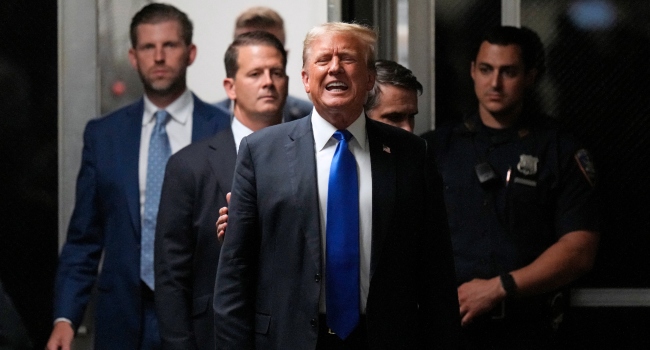
A New York jury has convicted former President Donald Trump on all charges in his hush money case, a significant legal and political development just five months before the presidential election where he seeks to reclaim the White House.
Trump, 77, was found guilty on all 34 counts of falsifying business records to conceal a payment meant to silence adult film star Stormy Daniels. The verdict was delivered after more than 11 hours of jury deliberation over two days.
Upon hearing the verdict, Trump, who was released without bail and is expected to appeal, initially remained composed in the Manhattan courtroom. However, outside the courthouse, he denounced the verdict as a “disgrace” and “rigged,” vowing that the “real verdict” would come from voters in the November 5 election.
This conviction thrusts the United States into unprecedented political territory, as it marks the first criminal trial and conviction of a former U.S. president. Despite the conviction, Trump is not barred from continuing his presidential campaign, even if he were to receive a prison sentence from Judge Juan Merchan, who set sentencing for July 11.
President Joe Biden’s campaign issued a statement asserting that the trial demonstrated that “no one is above the law” and highlighted the ongoing threat Trump poses to democracy.
The case centered on Trump’s reimbursement of his lawyer, Michael Cohen, for a $130,000 payment to Daniels just before the 2016 election. Prosecutors argued that this payment and its cover-up were part of a broader scheme to influence the election by concealing damaging information about Trump. Daniels testified in detail about her alleged 2006 encounter with Trump.
Trump’s defense argued that attempting to influence an election was a normal part of democracy and that Trump had committed no crime. Despite the high stakes, Trump chose not to testify in his own defense.
The trial has been a significant distraction from Trump’s campaign to unseat Biden, though he used the media attention to portray himself as a political victim. Political analyst Keith Gaddie suggested that while the conviction may not drastically shift overall voter sentiment, it could impact critical swing states in the upcoming election.
Trump now faces the possibility of prison or probation. Although he could theoretically be sentenced to up to four years for each count, legal experts suggest that as a first-time offender, he is unlikely to serve time behind bars. An appeal process could extend over several months.
Additionally, Trump is embroiled in other legal challenges, including federal and state charges related to his alleged efforts to overturn the 2020 election results and for mishandling secret documents after leaving office. If he wins the presidency, he would not be able to pardon himself for these state-level charges; only the governor of New York has that authority.








